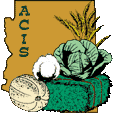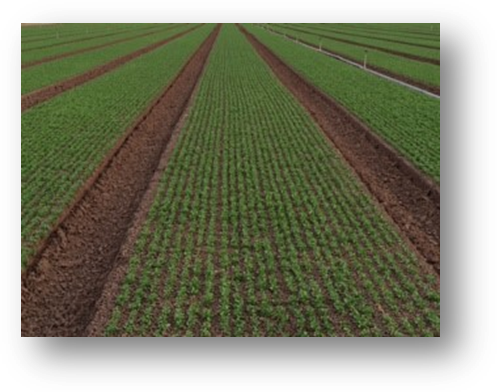
|
|
|
|

|
|||
|
|
|||
|
|
|||
|
Herbicide registrations were always the same for all types of lettuce until 2009
when this changed. Prior to around 1920 there was very little lettuce produced in
this part of the country and what was produced was mostly leaf or butter types.
After 1920 this changed dramatically. Lettuce acreage became increasingly important
in the west after 1920 when the acreage increased and the type of lettuce produced
changed from leaf to iceberg. The shift to iceberg was largely because iceberg shipped
long distances better than other types. In the early years, lettuce was packed in
sheds, placed in crates and cooled with ice. More than 80% of the lettuce produced
in this region was iceberg when the first herbicides were registered for use on
it. The data collected to support herbicide registrations were done largely with
iceberg lettuce and only “lettuce” appeared on the labels. Vacuum cooling was adopted
in the 1950’s and the types of lettuce produced here have shifted over the last
20 years. Now almost 50% of the acreage is leaf types (including romaine). The most
broad-spectrum of the limited herbicides registered for use on lettuce is Pronamide
(Kerb). When EPA reassessed the registration of Pronamide in lettuce in 2009 they
noted that data had been collected only for iceberg types and cancelled the registration
for leaf lettuce. Dow Agrichemicals have been working to collect the needed data
for leaf lettuce and expects the reregistration in November of this year.

To contact Barry Tickes go to: btickes@ag.arizona.edu.
|
|||
| Back | |||
|
For questions or comments on any of the topics please contact Marco Pena at the Yuma Agricultural Center.
|
|||
|
Home |
Cotton | Veggies |
Forages | Grains
| Citrus |
Crop x Crop Insects | Diseases| Weeds | Pesticides | Economics | News | Weather | Research | Photos | Contacts | General Info. Copyright © 2001 University of Arizona, College of Agriculture and Life Sciences Webmaster: Al Fournier (acis@ag.arizona.edu) |
|||
